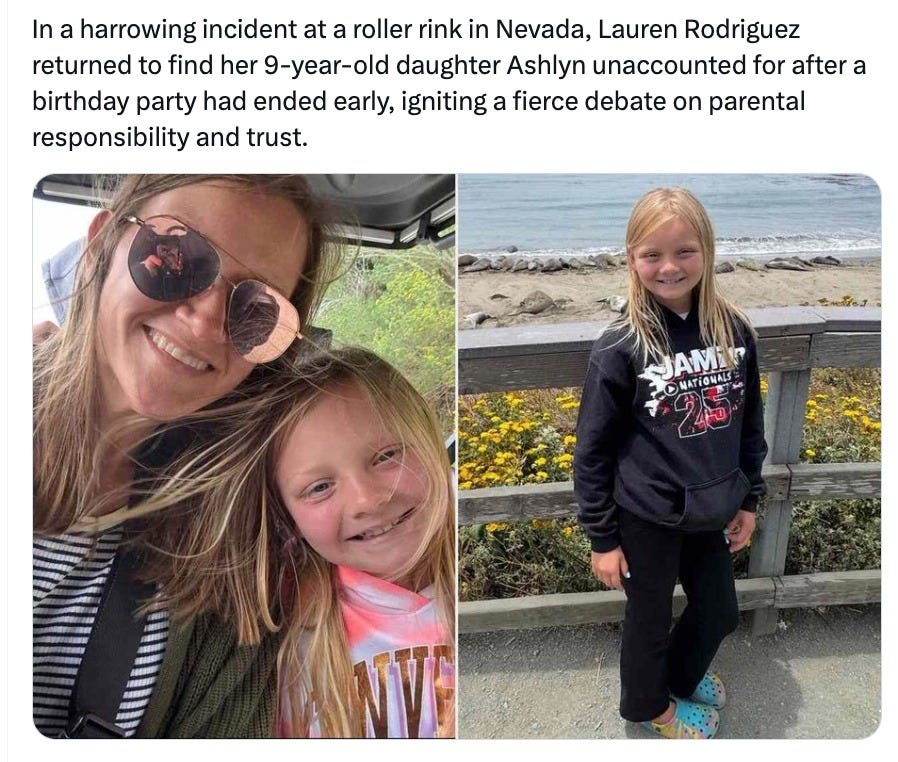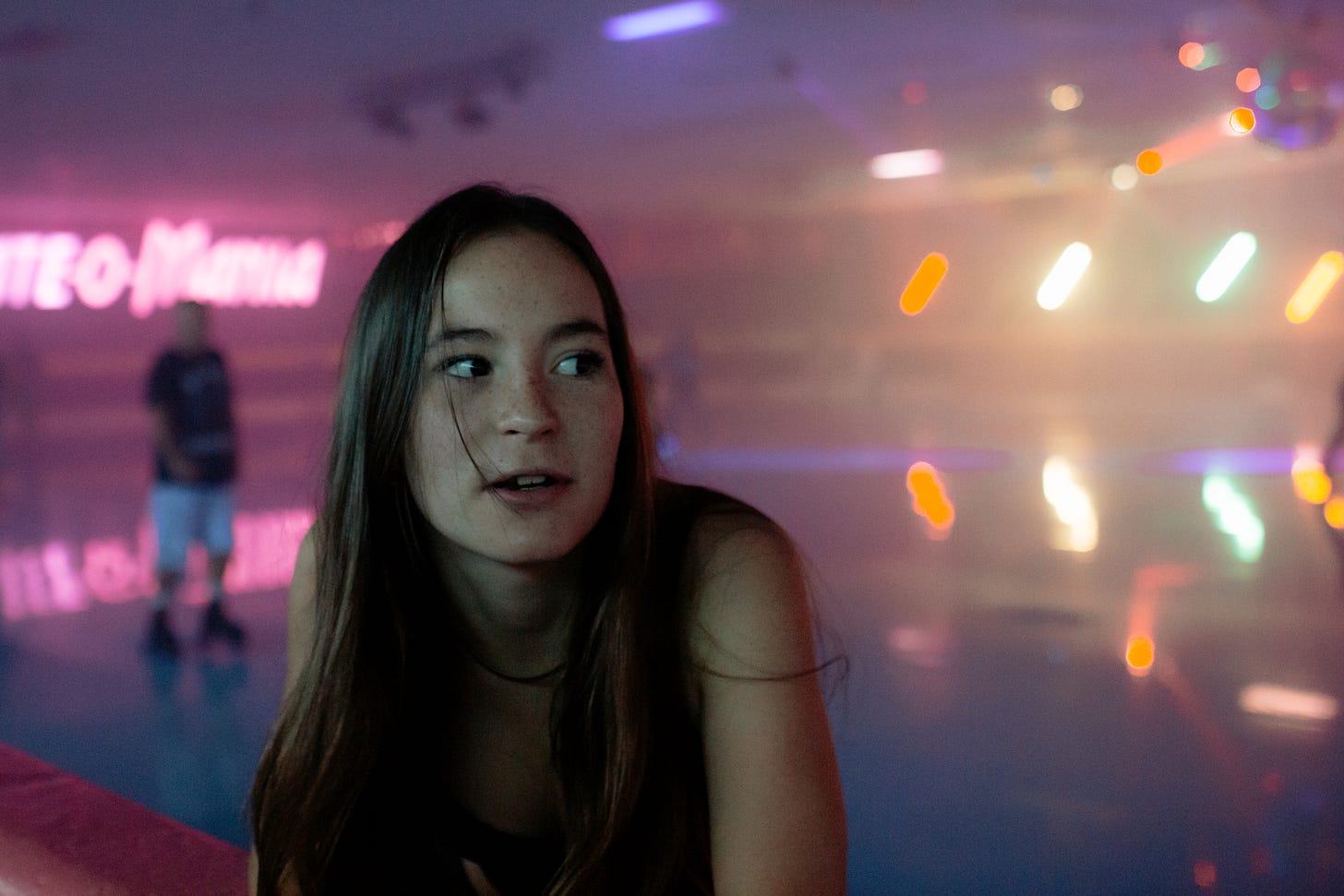You're not the captain of the parenting police
Let kids exist in public
It was a heartbreaking and harrowing afternoon for 9-year-old Ashlyn.
Her mom dropped her off at a roller-rink birthday party, and when she returned a few hours later, Ashlyn was nowhere to be found. The party room was empty and locked: Cue normal parental freak-out.
Ashlyn was fine. It was a run-of-the-mill miscommunication — the party had moved to the lobby to open presents, but Ashlyn had missed the memo and hung out with another friend who happened to be at the rink.
But it’s 2025, so this ordinary story became a viral TikTok, which itself turned into an article in People magazine:
“Mother Drops Daughter Off at Birthday Party, Returns 2 Hours Later to Find Her All Alone.”1

There’s a benign version of the incident: Ashlyn got distracted, lost track of the party, and didn’t look very hard for where her original group might have relocated. The mom hosting the party also got distracted, possibly by the chaos of hosting a party at a roller rink, and lost track of Ashlyn. The two moms didn’t communicate very well. Ashlyn learned a lesson about paying more attention and staying with your original group, the host mom learned a lesson about keeping tabs on her party guests, and everyone still managed to have fun.
The benign version, of course, would not have gone viral.
What did go viral was the mom’s livid account of the grave danger her daughter faced in her unsupervised hour at the rink. The fury continued in thousands of comments, rife with dark fantasies of predators lurking around corners and hiding in bathrooms to snatch innocent Ashlyns away.
Most comments were angrily directed at the feckless mom for leaving her child at the party in the first place. If you think that social trust has deteriorated in this country, look no farther than the roller-skating party pile-on.
Keep reading with a 7-day free trial
Subscribe to The Argument to keep reading this post and get 7 days of free access to the full post archives.




